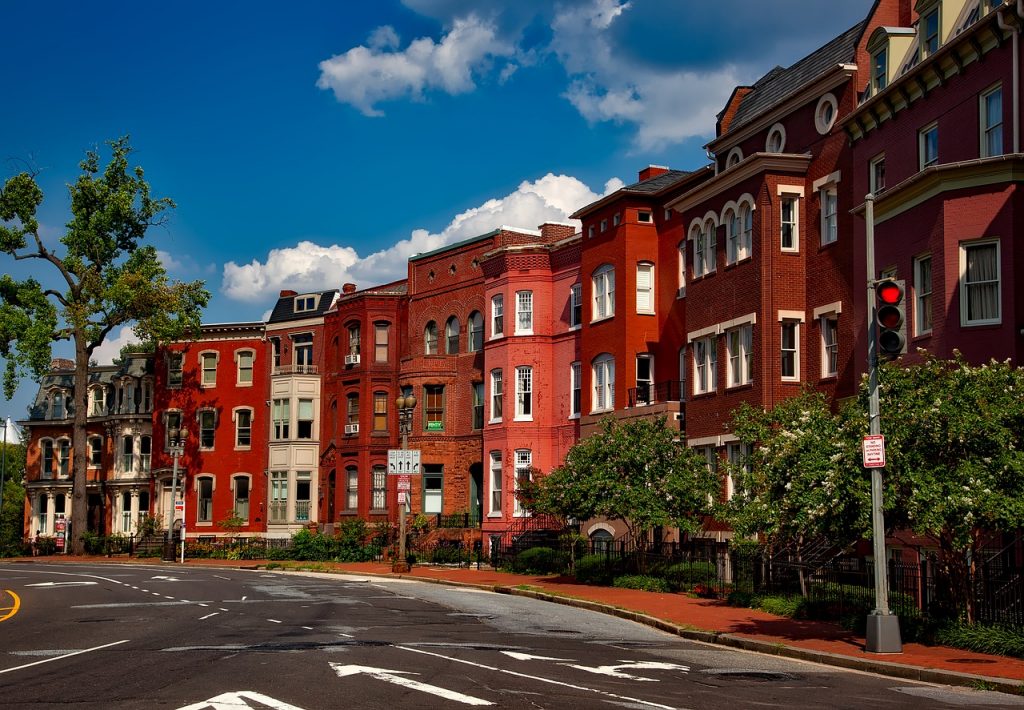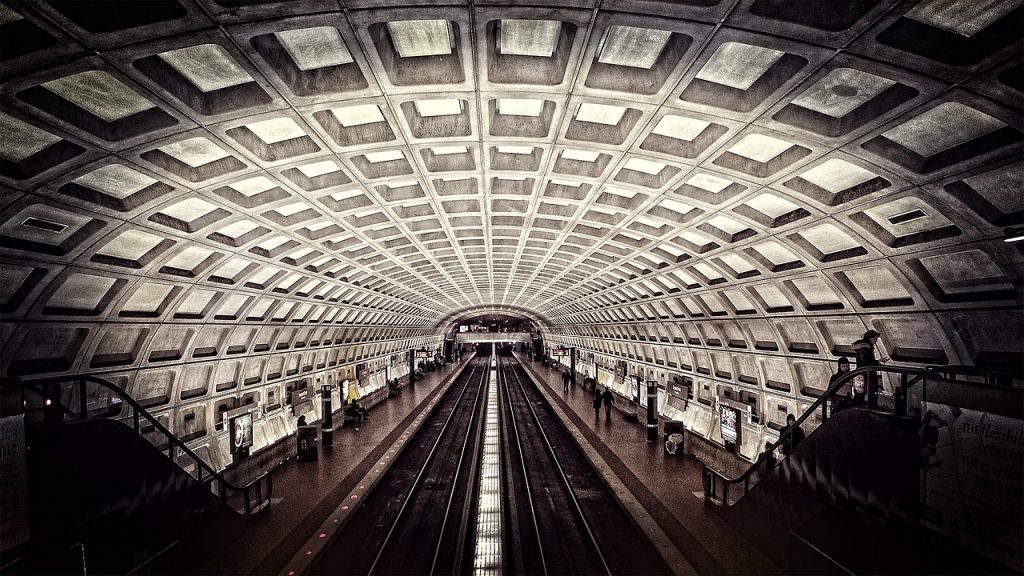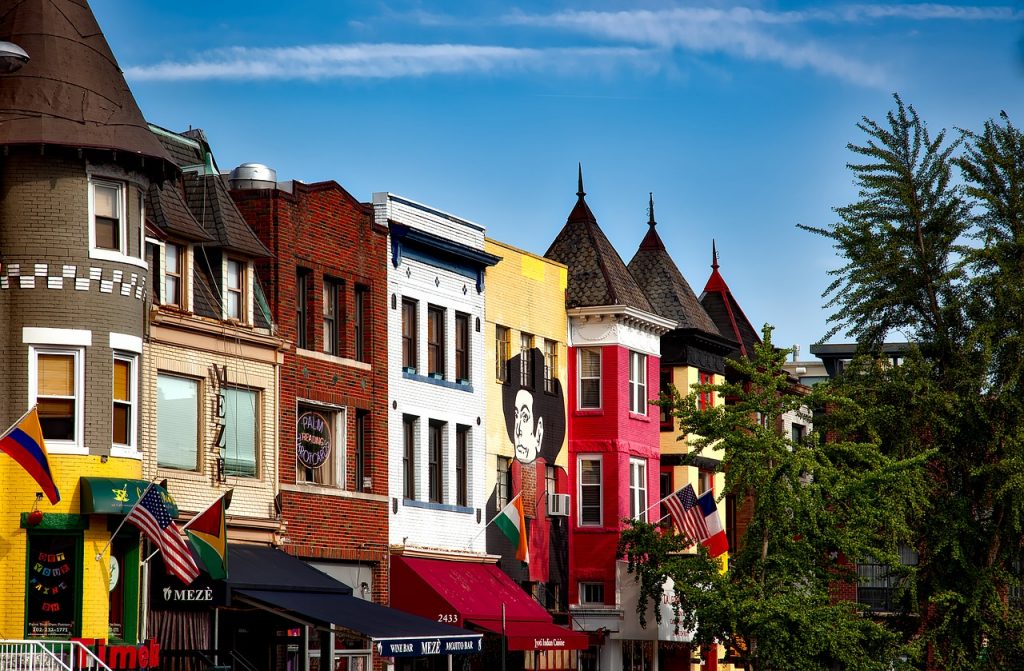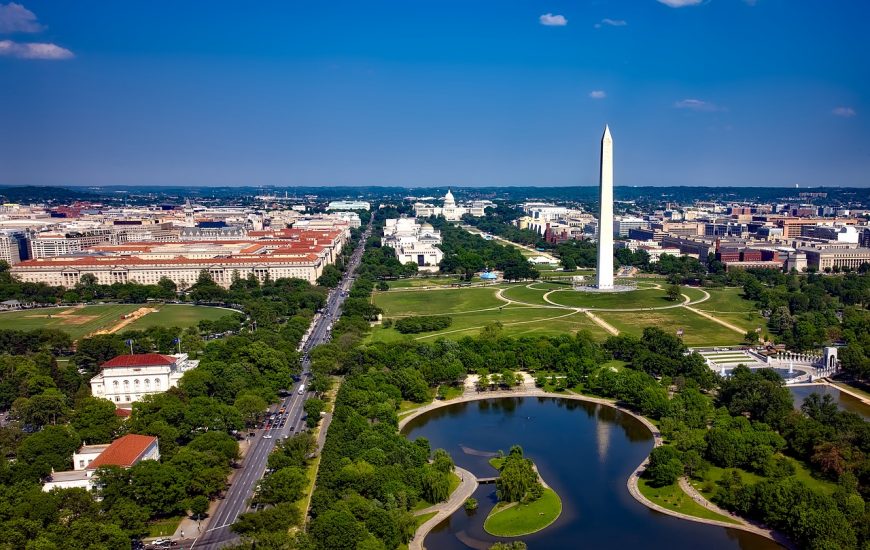Relocating to any major city can be intimidating, especially if you’re moving long distance. It’s difficult to know which neighborhoods are best and which areas to avoid. If you want to get it right the first time, we’re here to help! Here is a guide to help you plan your upcoming move to DC.
The DC Housing Market
Before moving to DC, brace yourself for a reality check when it comes to housing prices. The DC housing market is one of the most expensive in the nation. Of course, the cost of housing gets more expensive the closer you get to downtown DC, with prices also spiking near metro stops. Because most people commute into the District, there is a clear directional flow during rush hour. Determine the maximum distance you are willing to commute each way, and use that as a guide to start house hunting. Keep in mind you might get an additional thousand square feet of living space for an additional ten minutes on the road.

Whether you’re considering a home purchase or renting an apartment, brace yourself because real estate in the Nation’s Capital is sky-high.
Choosing a Neighborhood
Without a doubt, two of the best tools researching neighborhoods are Greatschools.org and NeighborhoodScout.com. Greats Schools rates schools between 1 and 10, based on their standardized test scores. Even if you don’t have any children, check out local schools before purchasing a home. Schooling is considered extremely important in the DC area and being in a good school district is viewed as a huge plus for resale value. Also, the website lets you choose a geographic area, and you can even click to see a specific school’s attendance boundaries to make house hunting easier. NeighborhoodScout.com is another great tool to help in your neighborhood search. It shows crime statistics for each neighborhood and makes it possible to see what kind of criminal activity is happening near your desired area. By far, the most prestigious county in Northern Virginia is Fairfax County, which also boasts some of the best schools.
Getting Around the DC Metropolitan Area
Traffic in downtown DC can be horrible at rush hour, so it’s best to find alternative ways to get to and from work. Rush hour is typically from 5 to 9 am, and 3 pm to 6:30 pm. The metro system is without a doubt the best way to get around. Riding the metro will save you the hassle of fighting traffic, and costs are minimal. The average daily commute costs around $12 per day round trip during rush hour, depending on where you’re going. Most government employers reimburse metro costs, so be sure to check your employer’s commuting benefits.

To avoid the headache of DC traffic, opt instead for the city’s speedy and reliable metro.
DC’s Job Market
Keep in mind the job market in the DC area is very competitive. The biggest employer by far is the US government, and dozens of law firms and corporations also have headquarters here as well. Be prepared to put your best foot forward to keep up with the concentration of highly qualified individuals living here.
Cost of Living
Aside from the exorbitant cost of housing, the cost of living in the DC area is quite good. Obviously, the closer you get to the city center, the more you will pay for goods and services. The cost of gasoline, food, and other expenses hover around the national average, with lower taxes in Virginia than in Maryland or DC.

While the cost of living here might be expensive, other goods and services are pretty reasonably priced.
Relocating to Washington, DC will be a fantastic experience. DC is an amazing city, rich in history and cultural activities. Do your research to help determine the best area for you and your family, and you will absolutely love living here. When it comes time for your move, find affordable movers for less, when you book with Cheap Movers DC (website). This company pairs you with local movers that are licensed and reputable at some of the best rates in town, taking the stress and expense out of the moving process!


